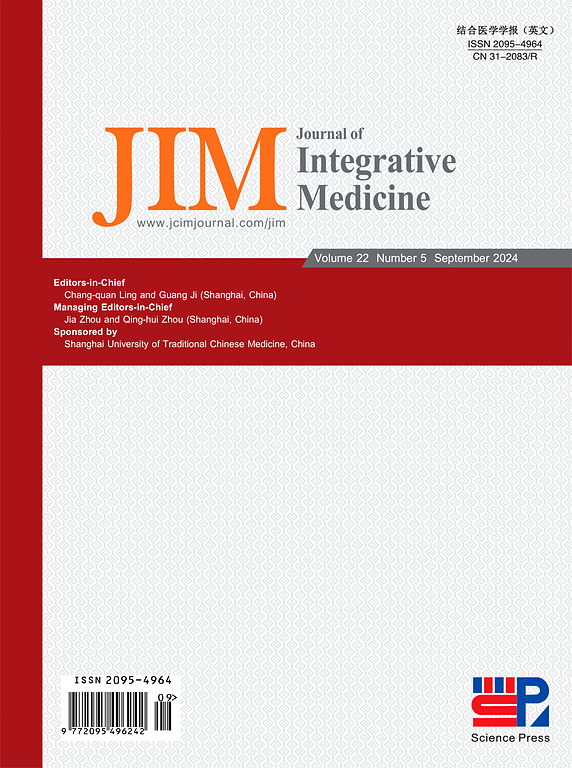HOW DO NURSING STUDENTS PERCEIVE HEALTHCARE TECHNOLOGY? A PSYCHOMETRIC VALIDATION STUDY OF THE USABILITY EVALUATION QUESTIONNAIRE IN VIETNAM
IF 4.2
2区 医学
Q1 INTEGRATIVE & COMPLEMENTARY MEDICINE
引用次数: 0
Abstract
The rapid advancement of technology has transformed the role of nurses and nursing students in patient care, making it an integral component of healthcare delivery. The use of innovative technologies has become commonplace in healthcare settings, creating a high-tech environment that can enhance nursing care quality and patient experience. It is essential for nursing staff and students to be receptive to incorporating such tools into their practice to ensure safe and efficient use of various forms of healthcare technology. Objective: Given the absence of an existing tool in Vietnam to evaluate healthcare students’ technology acceptance, the aim of our research was to culturally adapt, translate, and validate the Usability Evaluation Questionnaire (UtEQ) among nursing students in Vietnam. Method: We conducted a methodological and cross-sectional study in two phases: translation of the UtEQ to Vietnamese (UtEQ-V) following six stages proposed by Beaton and collaborators, and assessment of its psychometric properties in a non-probability sample of 295 Vietnamese nursing students. Results: The UtEQ-V’s reliability was found to be above 0.8 for all factors (.88–.95), while confirmatory factor analysis showed adequate goodness-of-fit indicators. Conclusion: The UtEQ-V is a reliable and valid instrument that can support nursing educators and researchers to assess students’ technology acceptance during their clinical training.护生如何看待医疗保健技术?越南可用性评价问卷的心理测量验证研究
技术的快速发展已经改变了护士和护理学生在病人护理中的作用,使其成为医疗保健服务的一个组成部分。创新技术的使用在医疗保健环境中已经变得司空见惯,创造了一个可以提高护理质量和患者体验的高科技环境。护理人员和学生必须接受将这些工具纳入他们的实践,以确保安全有效地使用各种形式的医疗保健技术。目的:鉴于越南缺乏现有的工具来评估卫生保健学生的技术接受程度,我们的研究目的是在越南护理学生中进行文化适应,翻译和验证可用性评估问卷(UtEQ)。方法:我们进行了方法学和横断面研究,分为两个阶段:按照Beaton和合作者提出的六个阶段将UtEQ翻译成越南语(UtEQ- v),并在295名越南护理专业学生的非概率样本中评估其心理测量特性。结果:UtEQ-V各因子的信度均在0.8以上(0.88 ~ 0.95),验证性因子分析显示拟合优度指标充足。结论:UtEQ-V是一种可靠、有效的工具,可为护理教育工作者和研究人员在临床培训中评估学生的技术接受程度提供依据。
本文章由计算机程序翻译,如有差异,请以英文原文为准。
求助全文
约1分钟内获得全文
求助全文
来源期刊

Journal of Integrative Medicine-Jim
Medicine-Complementary and Alternative Medicine
CiteScore
9.20
自引率
4.20%
发文量
3319
期刊介绍:
The predecessor of JIM is the Journal of Chinese Integrative Medicine (Zhong Xi Yi Jie He Xue Bao). With this new, English-language publication, we are committed to make JIM an international platform for publishing high-quality papers on complementary and alternative medicine (CAM) and an open forum in which the different professions and international scholarly communities can exchange views, share research and their clinical experience, discuss CAM education, and confer about issues and problems in our various disciplines and in CAM as a whole in order to promote integrative medicine.
JIM is indexed/abstracted in: MEDLINE/PubMed, ScienceDirect, Emerging Sources Citation Index (ESCI), Scopus, Embase, Chemical Abstracts (CA), CAB Abstracts, EBSCO, WPRIM, JST China, Chinese Science Citation Database (CSCD), and China National Knowledge Infrastructure (CNKI).
JIM Editorial Office uses ThomsonReuters ScholarOne Manuscripts as submitting and review system (submission link: http://mc03.manuscriptcentral.com/jcim-en).
JIM is published bimonthly. Manuscripts submitted to JIM should be written in English. Article types include but are not limited to randomized controlled and pragmatic trials, translational and patient-centered effectiveness outcome studies, case series and reports, clinical trial protocols, preclinical and basic science studies, systematic reviews and meta-analyses, papers on methodology and CAM history or education, conference proceedings, editorials, commentaries, short communications, book reviews, and letters to the editor.
Our purpose is to publish a prestigious international journal for studies in integrative medicine. To achieve this aim, we seek to publish high-quality papers on any aspects of integrative medicine, such as acupuncture and traditional Chinese medicine, Ayurveda medicine, herbal medicine, homeopathy, nutrition, chiropractic, mind-body medicine, taichi, qigong, meditation, and any other modalities of CAM; our commitment to international scope ensures that research and progress from all regions of the world are widely covered. These ensure that articles published in JIM have the maximum exposure to the international scholarly community.
JIM can help its authors let their papers reach the widest possible range of readers, and let all those who share an interest in their research field be concerned with their study.
 求助内容:
求助内容: 应助结果提醒方式:
应助结果提醒方式:


